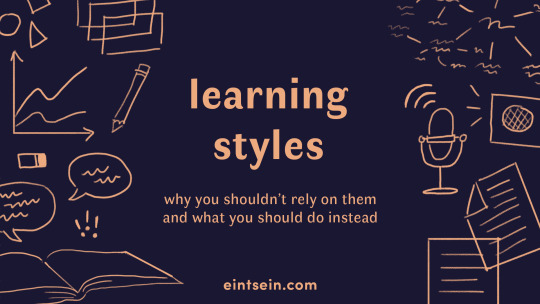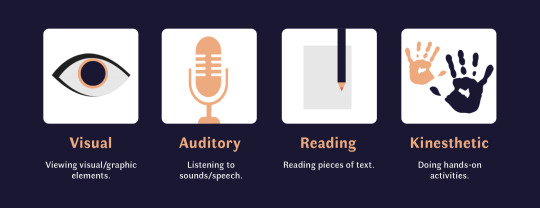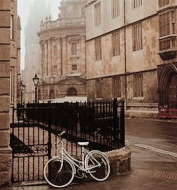Text
she is timeless
I am so busy keeping my head above water that I scarcely know who I am, much less who anyone else is.
— Sylvia Plath
1K notes
·
View notes
Text
Here is what they don’t tell you.
Icarus laughed as he fell.
Threw his head back and yelled into the winds, arms spread wide, teeth bared to the world.
There is a bitter triumph in crashing, when you should be soaring.
The wax scorched his skin, ran blazing trails down his back, his thighs, his ankles, and his feet.
Feathers floated like prayers past his fingers, close enough to snatch back.
Death breathed burning kisses against his shoulders, where the wings joined the harness.
The sun painted everything in shades of gold.
There is a certain beauty in setting the world on fire, and watching from the center of the flames.
- Fiona (weareallboats)
3K notes
·
View notes
Text




richard siken / salma deera / jen mazza / joy ladin
19K notes
·
View notes
Text
<3
“before you die, experience the love of a writer, poet or painter.
if you’re lucky enough to be an artist’s muse, they will immortalise you.”
- Soledad Francis
19K notes
·
View notes
Text
“Novembers are for softest sleep when skies are dark and grey. They do not mind the time you keep when night looks much like day. They do not mind the rain that falls so warmly down your cheek. ‘Rest easy now’ is what they’d say if months knew how to speak.”
— Ellis Nightingale
25K notes
·
View notes
Quote
I plant roots so deeply in the people I love that I always lose a piece of myself when they go.
Unknown (via meineluft)
3K notes
·
View notes
Text
keeping this on my timeline, I’ll update after testing it
Learning Styles: Why You Shouldn’t Rely on Them and What You Should Do Instead

You’ve probably heard before that people take in new knowledge more effectively through different mediums. In other words, people have different learning styles.
The most common classification of ‘learning styles’ is the VARK method, which stands for Visual, Auditory, Reading, and Kinesthetic. It classifies people based on how they prefer to learn new material.

Instructors use these classifications to help their students understand new material. Students rely on them to identify their learning needs and find more efficient ways to study.
I often receive questions along the lines of ‘how can a [insert learning type here] learner study for [insert subject here]?’ or ‘what study methods work best for [insert learning type here]?’ Although I understand where you’re coming from, there are some problems with pegging yourself to a certain learning style.
Why You Shouldn’t Rely on Learning Styles
There’s No Scientific Evidence
Firstly, there’s no scientific evidence supporting the theory of learning styles. Teachers who adapt their lesson material to different learning styles don’t see an improvement in performance from their students. Students who believe they fit a particular learning style don’t do better in tasks associated with that learning style compared to their peers who identify with a different learning style.
Learning Styles are Preferences
They don’t tell you whether you receive information better a certain way. This is one of the flaws of the VARK questionnaire - it uses phrases like you would, you learn best by, you prefer, and you like. This only tells you the things you already do and the habits you’ve already formed, not what’s best for you and yields the best results.
Plus, the fact that these questions are self-reported undermines the reliability of the results of the questionnaire. Even if you think you’re extremely self-aware and can identify a single medium through which you receive information most effectively, adhering to a single medium will result in major drawbacks, which I’ll explain later in this post.
The Theory’s Inconsistent with Neuroscience
The idea of learning styles is also inconsistent with findings in neuroscience: the brain is an interconnected organ, so when you utilize one learning method, other learning methods are activated as well. For example, when you read a certain piece of text, your brain would then find a way to visualize what you read or to sound it out in your head.
What You Should Do Instead
Use All Learning Methods
Because our brain is so interconnected, it would be best to utilize all learning methods so that you can learn the material as comprehensively as possible. This was a method my seventh-grade science teacher taught me, and it’s been more helpful than I was aware of.
For example, when studying a relationship between two variables in a graph, you should
Study the physical attributes of the graph. Remember axes, units, the general shape of the graph, and outliers. This will help you understand the general correlation or relationship between the two factors. (Visual)
Read the explanation of the graph and rewrite it in your own words, either in the form of notes or a paragraph, so long as there is logical consistency. Also, redraw the graph. (Visual, Reading)
Explain (out loud) what’s going on in the graph and the explanation/theory behind it, while only looking at the graph you redrew. Do so by walking around. (Auditory, Kinesthetic)
Focus on the Material
The most important thing when it comes to studying is to focus on the material. The way that information is best processed by your brain depends on the type of information you’re receiving much more than what learning method you prefer to use. So, you should adopt as many of the learning styles as you can, focusing on what best suits the material you’re studying.
For example, you won’t understand geometry as comprehensively if you don’t visualize the shapes. You won’t be able to speak a different language without hearing how the correct accent is supposed to sound. You won’t be able to do math without actually doing the problems - just reading through sample questions and answers isn’t very effective.
In short, it doesn’t help to obsess over learning styles and only base your study habits on what style you’re classified into. Instead, you should utilize all learning styles and focus on study methods that work best for the content of what you’re studying.
5K notes
·
View notes
Text
11/3/20
Honestly, I am having some serious trouble with motivation towards assignments, studying, cleaning, etc. I need to set up a schedule but that seems so daunting. I’m not even really sure how to study. I’m lost, suggestions?
Iris
0 notes
Text
keeping this on my feed <3










on obsession with lost purity
purity - billy collins // letters to milena - franz kafka // the vvitch // a better daughter/son - rilo kiley // richard siken // black swan // again - crusher-p // the unabridged journals of sylvia plath - sylvia plath // wilted flowers - candido portinari
686 notes
·
View notes
Text









you are writing a poem in your black notebook, sitting on the floor, still wearing your cigarette pants and shirt you wore at school, every now and them you hear the bark of your neighbour’s dog that breaks the peaceful silence. you feel like the world around you has stopped. there’s only you, your notebook, the dog and the burning candle.
72 notes
·
View notes
Text
dark academia / classical music ii
part i. more recommendations, as requested, this time with some female composers as well!
schumann
• waldszenen
bax
• november woods
saariaho
• laterna magica
• nymphéa
vieuxtemps
• capriccio for solo viola
bruckner
• symphony no. 7
• ave maria
• symphony no. 3
brahms
• clarinet quintet
• clarinet trio
• clarinet/viola sonatas in e flat major & f minor
schumann (clara)
• 3 romances
• piano concerto in a minor
• nocturne op. 6 no. 2
• ballade op. 6 no. 4
clarke
• morpheus
• viola sonata
caccini
• lasciatemi qui solo
scriabin
• le poème de l’extase
chaminade
• arabesque no. 1
enescu
• konzertstück for viola & piano
• string octet
farrenc
• symphony no. 3
pergolesi
• stabat mater
mendelssohn (felix)
• string quartet no. 1
bach (johann sebastian)
• six cello suites
• sonatas & partitas for violin
boulanger
• reflets
• trois morceaux pour piano
• nocturne
note: to all of you fans of impressionism, here’s an interesting female composer!
mahler
• piano quartet in a minor
hindemith
• viola sonata op. 11 no. 4
• trauermusik
whitacre
• a boy and a girl
• lux aurumque
• nox aurumque
mahler (alma)
• 5 lieder
ravel
• la valse
• string quartet
• pavane pour une infante défunte
schubert
• string quartet no. 14
fuchs
• sonata pastorale
grieg
• string quartet no. 1
strauss
• vier letzte lieder
mendelssohn (fanny)
• das jahr
borodin
• piano quintet in c minor
130 notes
·
View notes
Text
Dark Academia Lifestyle
Remain an enigma, talk less about yourself. In social situations, make it a game, even if you are a rather social person, to shroud yourself in mystery. If others show interest in you, answer vaguely. Disappear at specific times. Reveal little of your background. When you do speak, speak in riddles or quotes. That isn’t to say you should never speak up in class or in debates, have opinions and remain socially active; however, keep people guessing a lot of the time, and, if you’re really into it, only speak when spoken to.
Wear vintage clothes, elegant accessories, monochrome colors. Emphasize sharp features with purely dark or light colors and jewel tones. I usually find nice vintage clothes at random thrift stores. Keep an open mind.
Listen to jazz and classical music. Listening to older, more tasteful music brings a spark of elegance to your life. I, personally, like to hear the used jazz vinyls crackle. There are multiple types of dark academia; to me, jazz demonstrates the erratic artist spirit of revolutionaries, while classical music possesses me with the sophisticated spirit of a Classicist who has preparing tea down to a science.
Light candles. Doing things such as writing, reading, and getting ready for bed by candlelight makes it seem thrice as elegant and academic… going to sleep so late never looked so enticing. On the other hand, you could wake up before dawn, light some candles, and study or read.
Stay ahead in school. Read your textbooks ahead of time, write essays about anything you’d like at all, just for practice. If you’re learning about something in science, devise experiments to illustrate the concepts to yourself and make them easy to remember. If you’re reading a book in English, read a handful of articles about the author beforehand to prepare, write down quotes from the book, make essay pitches, write to your heart’s content a critique of the book, an analysis of the book, of gender roles in the book. In history courses, find articles about the subject matter, annotate them, and write about them. If you’re taking a math class, devise applications of the concepts and solve problems of your own creation.
Go to libraries, museums, bookshops, and coffee shops. These are all really good places to sit in the corner and read for hours on end. Not only do you get Mysterious Points but you get an aesthetic environment and (hopefully) some peace in which to devour literature. I know that in the upcoming term, I’m going to be in the library from opening time to closing time every day.
Make Ancient Roman or Greek food. To be honest, the food was of so much better quality than it often is today, so I would suggest looking into some ancient cuisine archives to look for some recipes for your dinner party. Not only is it most of the time much better than modern food, but it’s also much more elegant. Not to mention it is fun and enlightening to try recipes which are perhaps completely foreign to you.
Have routines. Perhaps your life is erratic, but you can feel some semblance of order and elegance by creating rituals for, perhaps, everything. You might start the day off with a walk around the neighborhood or a nearby pond. I start my writing sessions by 1) playing jazz 2)opening my windows 3)reading Belief and Technique for Modern Prose 4)chugging a whole glass of water really fast 5) breathing violently. Feel free to make up really weird Winding Down routines, like, I don’t know, closing all your windows, stripping down, and meditating for 20 minutes before you go to sleep. Literally anything. It doesn’t even have to be useful, it just has to be strange.
Hang stuff up on your walls. Postcards, paintings, drawings, poetry, snippets from books, moodboards, your routines, lists (places you want to go, people you want to meet, things you want to do), playlists. Make it yourself and make it chaotic and, most importantly, make it aesthetic.
READ. Read anything and everything educational. Do it. Just, don’t pick up your phone for 3 days because you’re reading, just ignore everything else. Good things to read would be: feminist literature, nonfiction, mystery novels, Rebecca by Daphne Du Maurier…
6K notes
·
View notes
Quote
I hope you find someone who knows how to love you when you are sad.
Nikita Gill (via thoughtkick)
Imagine having someone who understands that you may sink, but you will still hold their hand as long as they let you. nothing sweeter to think abt
2K notes
·
View notes
Quote
To me it is really important to live in what I call the space in-between. Bus stations, trains, taxis or waiting rooms in airports are the best places because you are open to destiny, you are open to everything and anything can happen.
Marina Abramović (via qvotable)
776 notes
·
View notes
Quote
This is possibly the most boring chapter in my life, I yearn for more.
my 10/20/2020 snippet
2 notes
·
View notes
Text
I’m so in love with pride and prejudice




Pride and prejudice (2005).
668 notes
·
View notes








